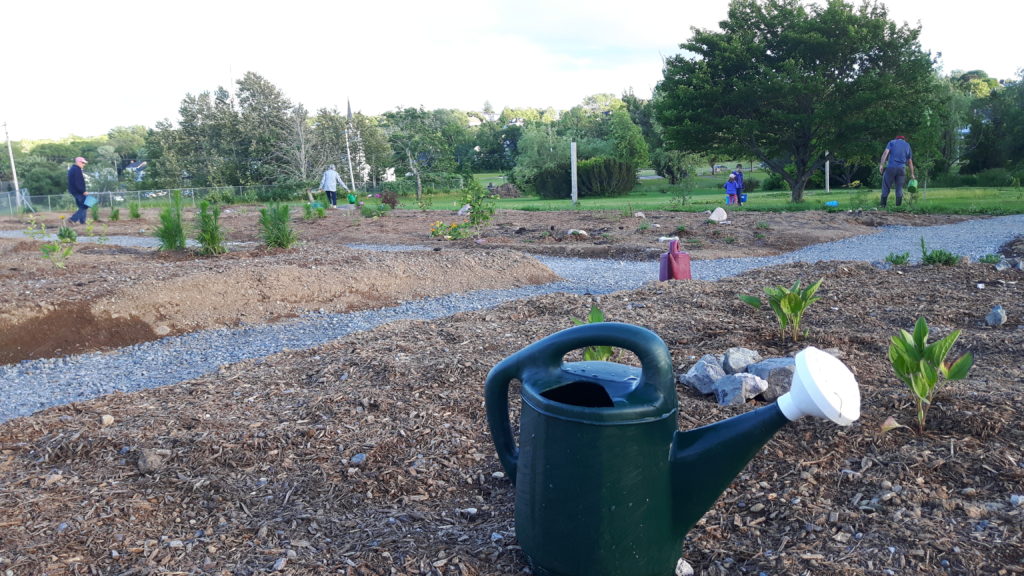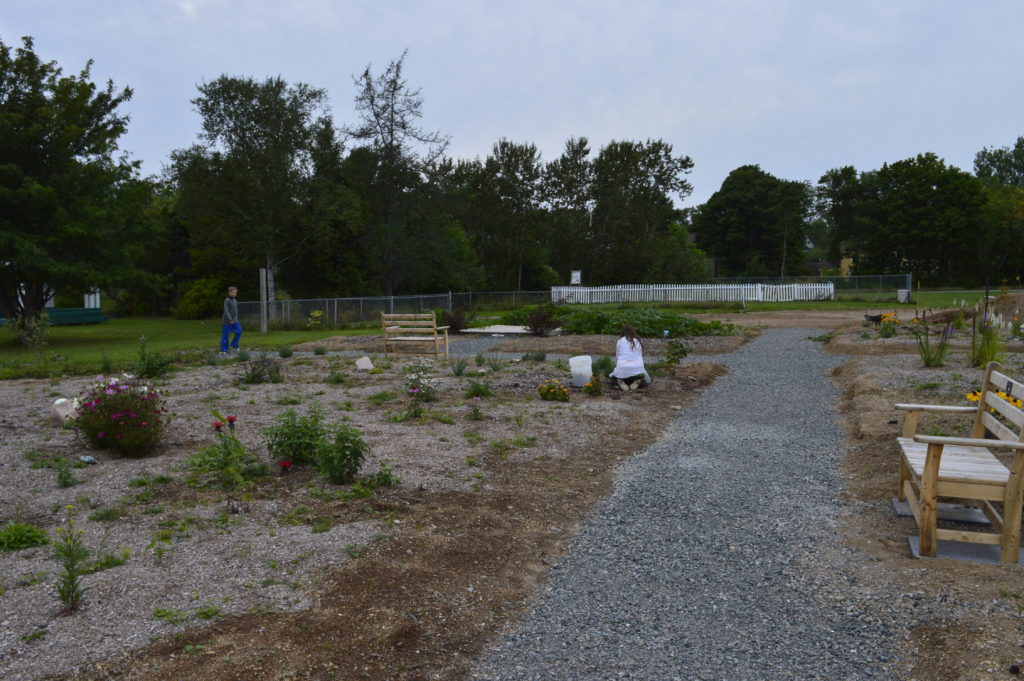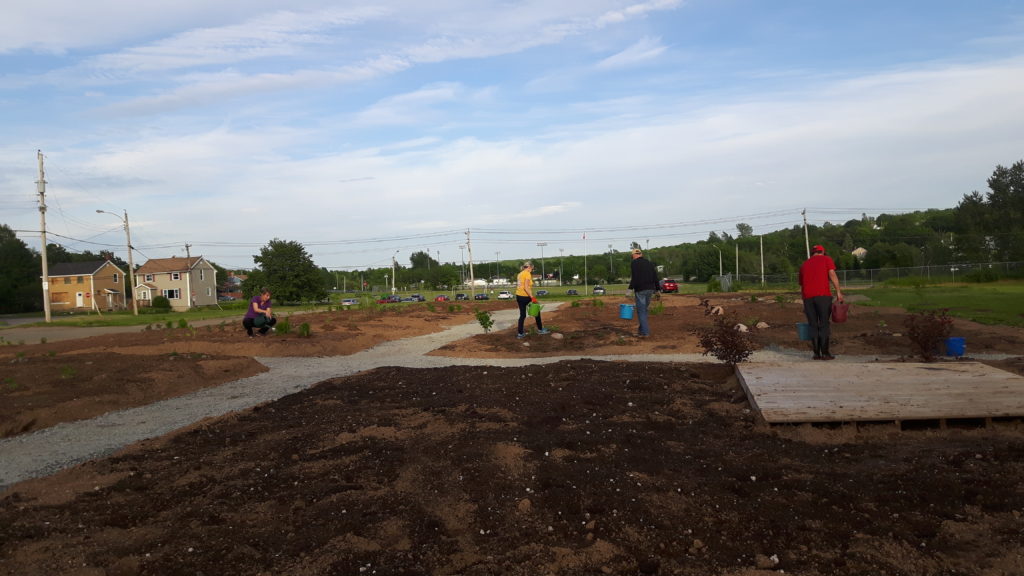
to lend a helping hand in the Community Pollinator Garden – photo: ACAP Cape Breton
by WGO staff
ACAP Cape Breton and the Southend Public Gardens Society invite the community to come out and help to rejuvenate the Southend Community Pollinator Garden at 28 Hillview Street on Saturday, June 8th. Volunteers will meet at the former Southend Community Centre site at 11am and wrap up at 2pm. Bags and gloves will be provided. Garden tools will be available but limited so please bring your own if possible.
The Southend Garden was planted in June 2017 by a group of community volunteers and dedicated staff from ACAP Cape Breton. The garden contains native plants which are attractive to pollinators such as birds, bees, butterflies, and other insects. As the garden grows, it will become an oasis for wildlife as well as people, helping to restore habitat and ecological integrity lost to urbanization. The different beds contain different kinds of gardens. One is a wetland garden, another a fruit-bearing garden, with pollinator-friendly plants throughout.

Why are pollinators important to us? Although some plant species are wind-pollinated, the majority of crops that we consume and receive nutrients from (i.e., fruits, vegetables, and nuts) are pollinated by these creatures. They are responsible for pollinating approximately one third of all crops grown for human consumption. Without pollinators, our diets would be severely limited, and it would be more difficult to acquire the nutrition that we need to stay healthy. By pollinating our crops, sources have cited their global value at over $292 billion dollars.
Despite their important role in the ecosystem many pollinator populations are declining. This decline is credited most severely to a loss of feeding and nesting habitats but we can help them. By joining in at the Southend Community Pollinator Garden on June 8th you can help to restore and rejuvenate these important habitats and make a meaningful difference.

Without pollinators, approximately 90% of flowering plants could not reproduce. Pollinators are birds, bats, beetles, bees, butterflies, and other small mammals that travel from plant to plant carrying pollen on their bodies. This fertilizes the plants and causes them to produce the fruit and seeds that they need to reproduce.
For more information, please phone ACAP Cape Breton at 902-567-1628 or visit www.acapcb.ns.ca. Remember to dress for the weather.
ACAP Cape Breton, located at 90 Esplanade in Sydney, is a registered charity with a clear vision in which local people are actively engaged, working, and learning together to build a healthy and sustainable community. ACAP offers the knowledge that Cape Bretoners need to make greener choices, and works directly on practical solutions that help protect and restore our natural environment.

